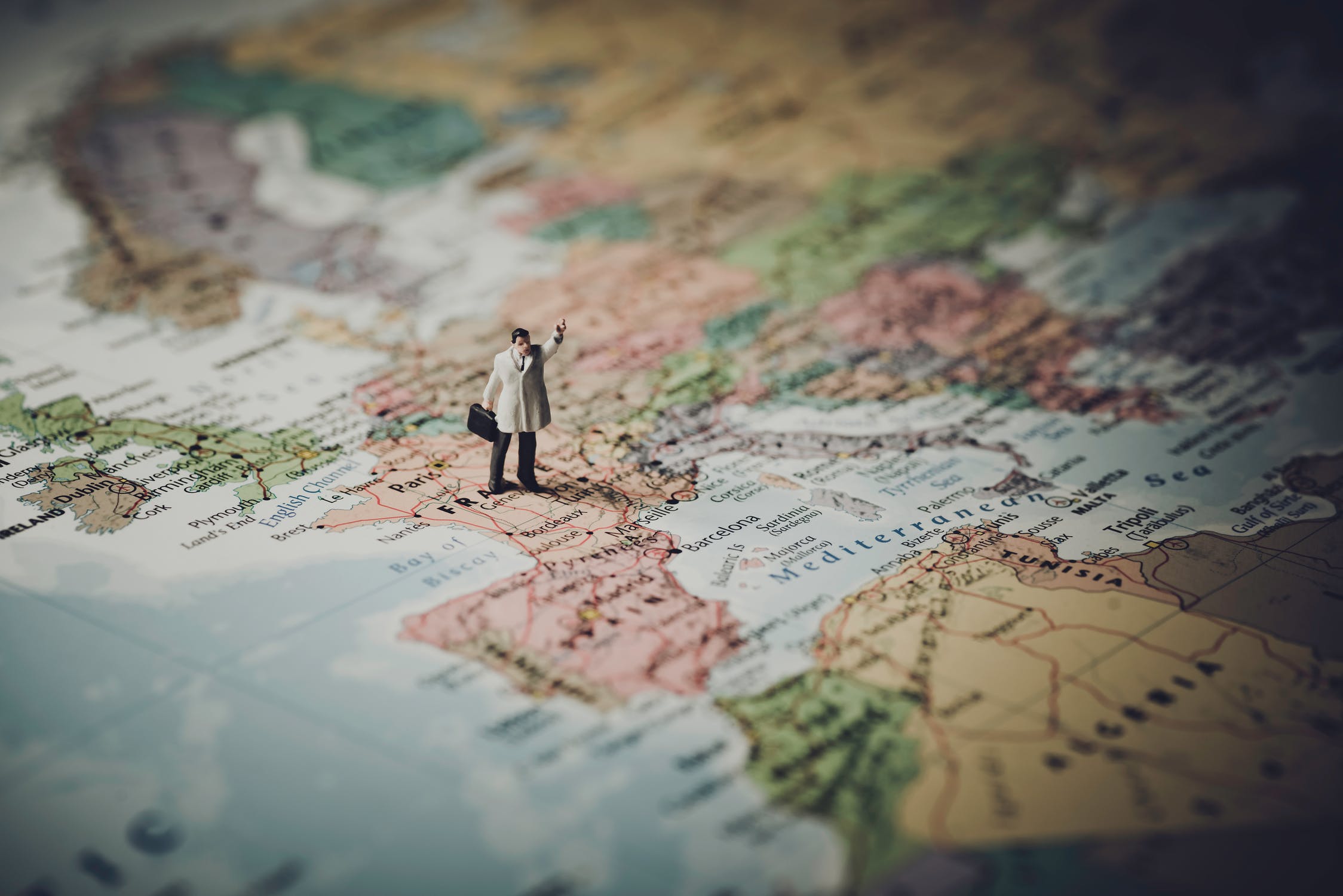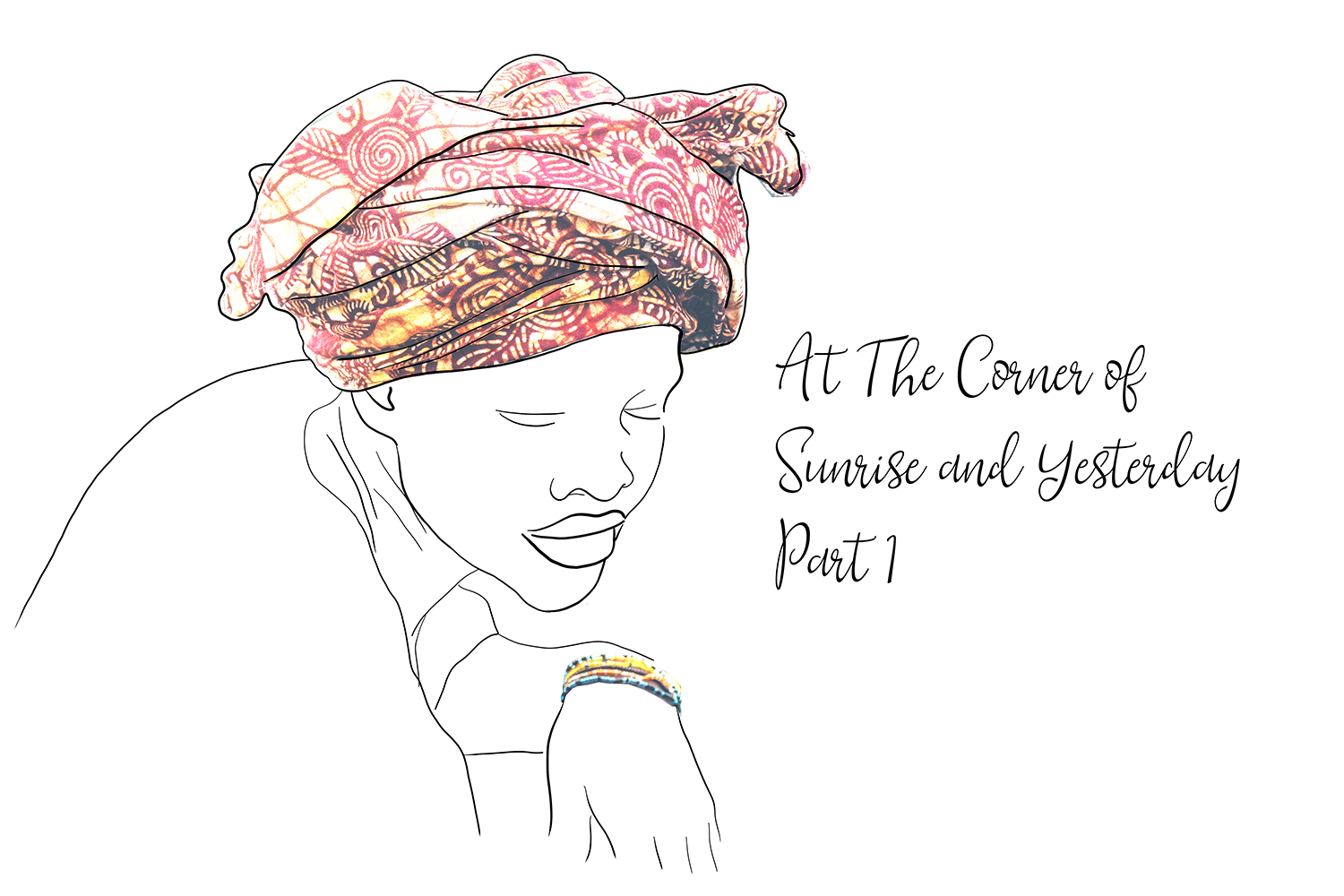
“Do you like it, Lydia? I bought it especially for you.”
I’m pretty good with names and faces, but this lady was a stranger to me. She knew my name and had inquired, over the course of the afternoon, about my mother, and her declining health. That should have worried me, but for some strange reason, I was at peace in her presence.
St. Andrew’s church was quiet today, as it normally is on week-days, and as I waited for my uncle to finish work inside, I had found myself on one of the benches in the church compound, staring far off into the distance. A lot of time had passed while I sat, and lost in my world, I hadn’t noticed the lady sitting next to me until she spoke.
She’d introduced herself as Mrs Olara and mentioned that she was visiting a friend in town.
“I… do.” The words came out falteringly, as they had all afternoon and all my life. It wasn’t a habit built out of caution – although the perception of caution had served me well over the years – but out of a simple desire to speak as little as possible.
“I do. It’s beautiful. Thank you.”
“You’re most welcome, Lydia.” Her voice was kind, almost like she felt pity for me. Well, I didn’t care or want her pity. She wasn’t the first. And she would not be the last. The neighbours at home talked, and so did my friends at school. After a while, I stopped paying attention to the whispers and the hurried glances.
“I got it from the little shop on Kivumbi Road. You know the one? It has the really nice books that you enjoyed reading. Do you still go there?”
I nodded my head and smiled.
Yeah. I knew the shop. A little too well, I must add. It was Mr Sempijja’s grocery store. Sunrise Supermarket, he called it, but we all knew it was just a big shop. We’d all seen proper supermarkets on the television.
But I liked Sunrise Supermarket. And I especially liked Mr Sempijja; he had a small section in the back where he kept a few books – enough to browse through, but not enough diversity for the people, and so no one ever really bought them. But he kept the books anyway, and soon, added a small stool in the corner.
Sometimes, his shop attendants sat there on slow days, waiting for customers. But every time I walked in, after browsing through the wares like all the other customers – past the UHT milk packets, through the collections of toilet paper (ranging from five hundred shillings to two thousand shillings) and then running my hands over the different types of toothpaste, I’d round the corner and the attendant sitting on the stool would smile sweetly and get up, as if to organize something, leaving the stool vacant.
It was a game that we played every Saturday morning: they would pretend to do something so I would have the stool, and I would pretend to be shopping idly before slowly making my way to the back. We all knew and we all played along.
Saturday mornings were perfect. For almost three hours, I lost myself in fantastic adventures, worlds beyond our little dusty town and heroes that came to save the day. I soared the skies in fighter planes during World War II, I climbed up magical beanstalks and fought one-eyed giants, I saved a princess in a tower and explored strange new planets.
And when the local church bell finally chimed, I would get up from my reverie and make my way to the counter where Mr Sempijja stood, behind the till. Stretching up to reach the counter, I would place the Sugar Bom Bom I had picked as I left the corner and a one hundred shilling coin. Mr Sempijja would smile, peering over his reading glasses and wish me a lovely day, and I’d trot out into the bright midday sun, unwrapping my candy as I continued to imagine the little wolf adopted by the ranger that saved his life in a fierce battle.
“Yes, I know the shop. And I still go there.” I smiled slowly and looked up at her. She smiled back.
“I grew up here, you know. In Upper Quarters.” Her gaze was distant, and for a moment, it seemed like she was talking to herself. “Ahhh, we had such good times, Lydia. Do you remember playing in the construction site? All those places to hide! And then the Mbatudde boys with their catapults!”
“You stayed in Upper Quarters?!” I couldn’t contain my excitement. “I stay there also! And the construction site is very near! Mummy says they’re going to start bringing big trucks soon.”
We talked some more, and I felt strangely drawn to this lady who – as the time passed – became less and less of a stranger.
I had unfurled the shawl she’d given me, and as we spoke and the afternoon got a little chilly, it had found its way onto my shoulders, and it felt like one of the hugs that my mother used to give me when I was younger.
We sat, in silence, for a while, and watched the sisters going about their duties in the gardens.
***
“Well, I have to go now. My time is up and the evening is getting long. It was a delightful pleasure meeting you, Lydia. You are a wonderful and very inspiring girl. Keep your chin up, and don’t let the world bring you down.” And with a wink and a swirl of her skirt, she walked off and disappeared behind the gate.
At that precise moment, a voice rang out.
“Lydia!”
It was my uncle, walking towards me, adjusting the white thing on his neck as his black robe brushed the green grass. He had to stop a few times as a couple of people stopped to say hello. “Good evening Vicar.” “Good evening.” “God bless you, my child.” “Peace be upon you.” I could almost guess exactly what words he’d use for each person.
***
We got into his car. He always made me sit in the front seat, and always insisted on reaching across the seat to fasten my seat-belt, and as always, without fail, his hands would linger slightly around my chest, as he made sure the belt was firmly in place.
As he started the car, he asked me where I’d gotten the shawl from, and I mentioned that an old friend of mum’s had given it to me as a gift.
“Really, that’s nice. Gifts for God’s children are a precious thing. What was her name?”
“She said she was called Mrs Olara, uncle.”
“Hmmm. I don’t remember a Mrs Olara amongst your mother’s friends.”
I looked at him. He was frowning and had slowed down a little. He looked concerned and I was afraid I was going to get a severe punishment, but momentarily, his frown relaxed and he smiled.
He reached across and patted my thigh, letting his hand rest there.
“Gifts are good, my child. But don’t accept gifts from any stranger without telling me first. You know I have to take care of you since your mother is unwell. Okay?”
I nodded and shifted my leg away, slightly. He squeezed a little, caressing slowly, and then returned his attention to the road.
We drove along the dusty streets, past the fields where the boys played soccer and the girls sat around, watching, chewing grass stalks and talking to the boys that wandered over. Past the little girls with jerrycans on their heads, heading home from the water tap where fifty shillings would buy you a twenty-litre jerrycan of water. Past the…
“Ahhh! We’re home.” His exclamation was as sudden as his braking, and the car came to a halt in front of our house.
Quickly, I opened the door and started to move. I was happy to see my mother again.
“Lydia, wait! I have to unbuckle your seat-belt.” Without waiting for my response, he reached across the car again…
***
As the sound of the car faded away, I went into the bedroom to check on my mother.
She looked more tired each day and she swallowed the medicine I gave her with increasing difficulty. All the doctors we’d gone to said the disease was a tough one and that treating it was complicated and very expensive. So after many months of going from hospital to hospital, we eventually went back home and waited. There was no more money, mummy had said.
I sat by her side as we talked about the day. She didn’t remember anyone called Mrs Olara. But that was okay, these days, my mother didn’t remember much anyway.
I lit the lamp as the night set in and adjusted her pillows so that she could be comfortable, then curled up on the bed next to her. In a few minutes, I knew I’d have to get up and prepare supper for the two of us, but for now, I just wanted to be here for a while. I covered both of us with the shawl from Mrs Olara and watched my mother’s face, her breathing ragged and shallow. I could almost hear her heart struggling.
My mother was dying, and I was scared. I wished I could escape into one of the stories at Mr Sempijja’s store; at least in those stories, I knew the endings were happy. I felt a tear make its way down my cheek. With a corner of the shawl, I brushed it away.
After a few minutes, she whispered, so faintly that I could barely hear the words.
“The Vicar is a good man, Lydia. And he has promised to take care of you when I’m not here anymore.”
“But I don’t want to stay with him, mummy.”
“He is my brother, Lydia. And has the money to put you in school until you’re able to fend for yourself.”
“But…”
“I trust him, Lydia. More than anyone else.”
I pulled myself closer to her and wrapped the shawl tighter around us. As the evening turned to night, I became a fierce gunslinger, riding fearless horses across the wild west, hunting outlaws and collecting my bounty, become a legend whose name drove fear into the hearts of all the bad guys.







